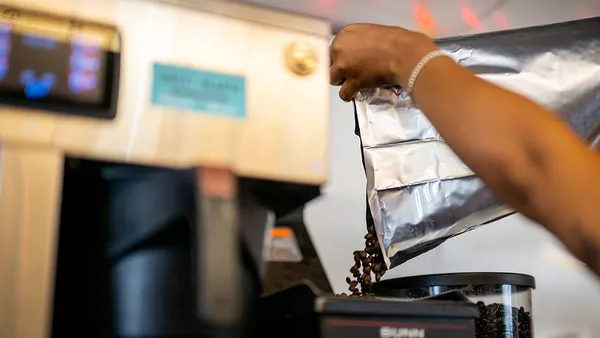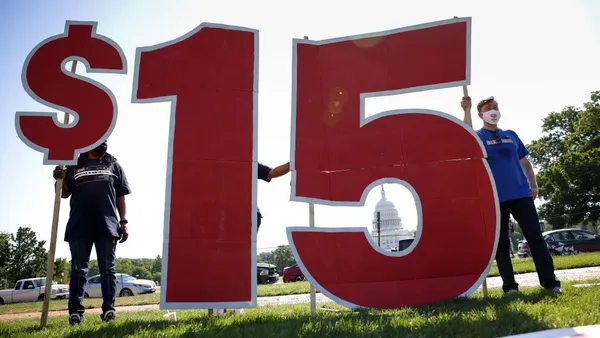Dive Brief:
- Worker participation in the February 2017 “Day Without Immigrants” — a nationwide protest to demonstrate the contributions of immigrants to the economy — was concerted activity protected by federal labor law, the National Labor Relations Board (NLRB) said in a recently released advice memorandum. The board’s memo came in response to an unfair labor charge filed against a suburban Detroit auto parts manufacturer after it fired 18 employees who took part in the nationwide walk-out.
- The National Labor Relations Act (NLRA) applies to both union and non-unionized employers and gives employees the right to engage in “concerted activities” for purposes of “mutual aid or protection.” However, there needs to be a link to working conditions for an employee’s activity to be protected. In this instance, NLRB found several links. First, the protest was in response to concerns about the revival of immigration raids in the workplace, the agency said. Second, more vigorous enforcement of immigration laws will likely cause employment standards and working conditions to deteriorate for all workers. Third, workplace raids and stricter enforcement will likely diminish workers’ employment opportunities, according to NLRB.
- The NLRB also said that, even if the employees were not engaged in a strike, the employer violated the NLRA by discriminatorily applying its attendance policy to the employees who participated in the protest.
Dive Insight:
The advice memo may not be the final word in the case (it directs a regional NLRB office to pursue the case if it can't reach a settlement with the employer), but tracks with what employment law attorneys were advising before several nationwide walkouts last year.
Within certain limits, employees have a statutorily protected right to engage in concerted activity, including strikes. Experts acknowledged that these protests fell into a murky area, but generally recommended that employers refrain from taking adverse employment actions against employees because of their participation.
The U.S. Chamber of Commerce, a business group, theorized before the memo was released, that the case could become a vehicle for the NLRB to expand the boundaries of the NLRA to include protected activity such as skipping work for a political protest. Such a move would be a bolster to organized labor, the Chamber said, at a time when the organizations are facing budget cuts and other threats.









